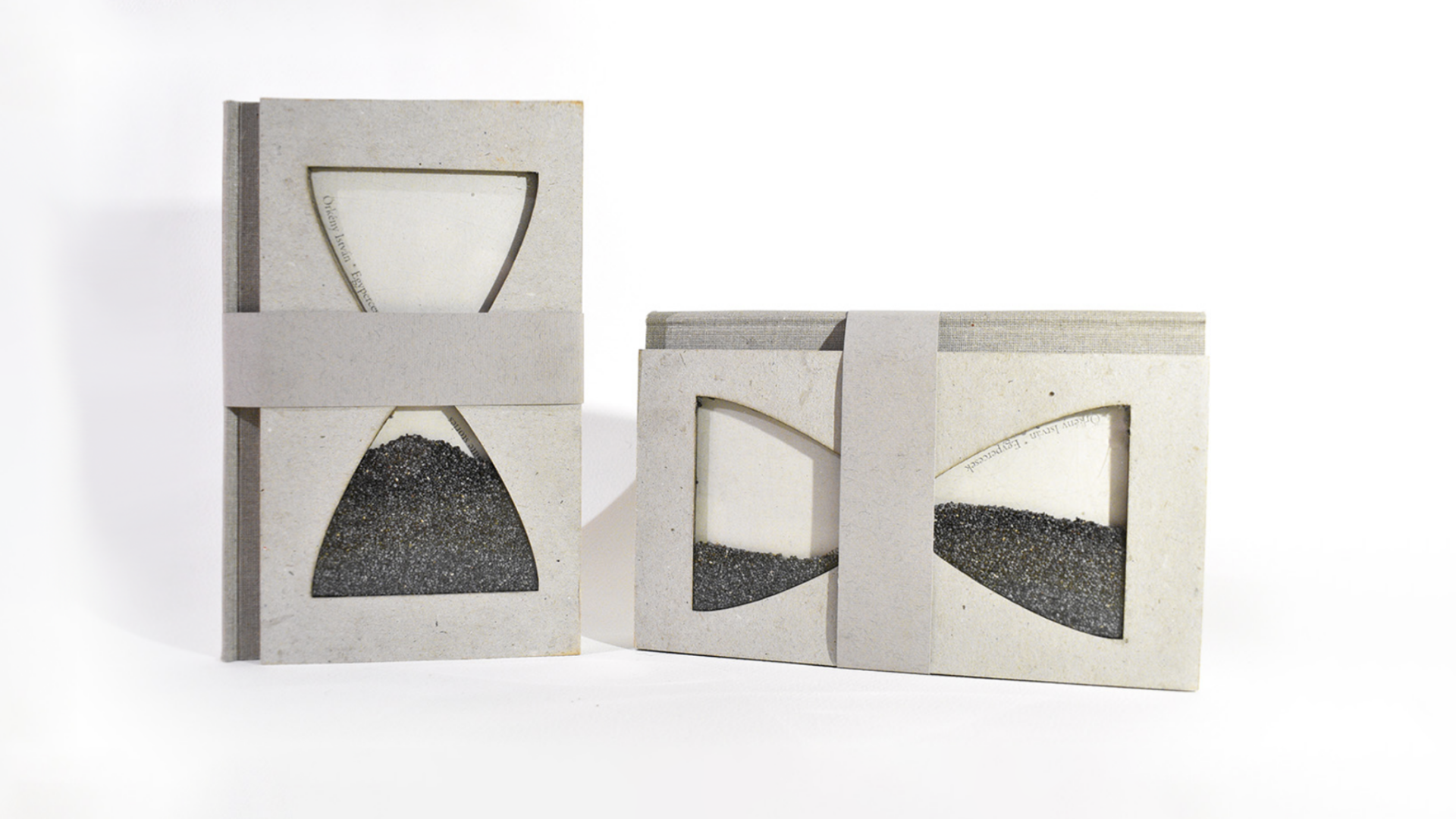
One Minute Stories - Hourglass Book designed by Regina Vitányi
The aim of the course is to equip graphic designers and other creatives with a comprehensive understanding of sustainable practices in package design. The course is held in English.
Participant Prerequisites
Secondary education and min. B2 level of English language and desire to explore sustainable practices of graphic design
About
Together, we’ll explore how a deeper knowledge of materials can enhance the quality of your work, open new opportunities, and form the foundation of a forward-thinking creative practice.
Throughout the course, we’ll dive into innovative technical solutions in printing, papermaking, and biomaterials. This will include practical workshops and visits to relevant locations, ensuring that you gain not just theoretical knowledge but also hands-on experience.
Through interactive lectures, we’ll analyze real-world applications of sustainable design practices, featuring case studies of pioneering designers and companies committed to alternative solutions, as well as success stories from design festivals.
We will also examine customer behavior and the psychology behind sustainability, discussing the responsibility that comes with package design. You’ll learn valuable decision-making processes to make more informed choices in your daily design work.
Our methodology blends practical tasks with theory-based discussions. Each sub-topic will begin with a presentation, followed by open dialogue where I encourage students to ask questions and share their experiences. A key focus will be on understanding the journey of our designs beyond the screen; we’ll print, touch, and interact with materials, fostering a deeper connection to the physical aspects of our work.
Study Outcomes
- The participant will have a more complex understanding of which design decisions can be considered more sustainable under given circumstances, and develop tools to communicate better options towards future clients during real life projects.
- The participant will understand what happens to the design off-screen, and will be able to elevate the quality of their design work taking material into account.
- The participant will have practical experience when it comes to different materials, know more about certain printing and production techniques (plant-based ink, recycling, biomaterials).
- The participant will be given the base knowledge to build their own future oriented design practice, and will be able to navigate career opportunities where they can apply the gained knowledge.
Necessary Materials
For independent work, students should have access to a laptop or tablet at home, as well as Adobe or similar programs for homework.
Assessment Criteria
The course ends with an assessment, which requires at least 75% participation in contact classes. The assessment will consist of mutual feedback based on the participant’s contribution and experience during the course. After completing the written feedback, the person who passed the assessment will be issued a certificate of continuing education from the Estonian Academy of Arts.
About the Lecturer
Regina Vitányi is a Hungarian visual designer, working in the field of cultural projects from complex branding to experimental approaches, with a special focus on printed material. Vitányi has won international awards for artist’s book projects which explore interactivity within printed media.
She worked on situated publications during her artist residency at Fresh AIR Berlin, and her pop-up book design about Estonian folklore was presented by the Budapest Art Hall, National Salon of Applied Arts and Design. She holds an MA in Graphic Design from METU Budapest.
Time: February 3 to April 14, 2025, Mondays from 6:00 PM to 8:15 PM
(excluding February 24)
Location: Estonian Academy of Arts, Põhja pst 7, Room A301
Credits: 2 ECTS, 30 academic hours of contact learning, and 22 academic hours of independent work
Group Size: 9–12 participants
Registration: open until the maximum number of participants is reached or until January 27
Contact: koolitus@artun.ee, +372 5919 9496
Cost: 340 euros
